![]() — หน้าแรก — เกาะติดข่าว
— หน้าแรก — เกาะติดข่าว
ข่าวเศรษฐกิจและธุรกิจประจำสัปดาห์
-
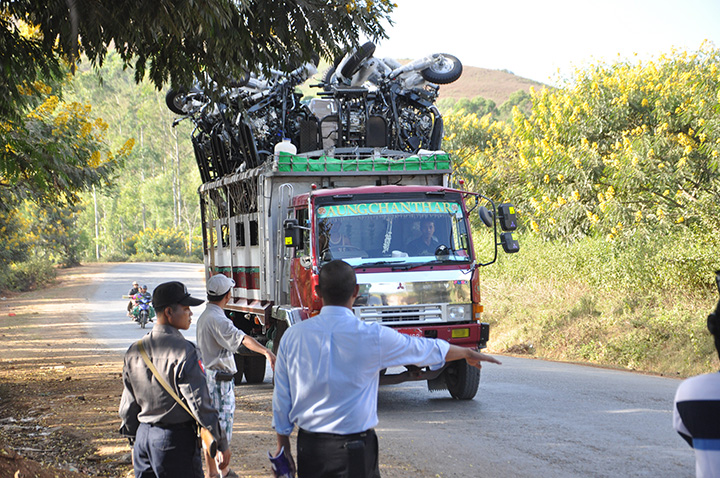
More than 9,500 tonnes of motorcycles worth US$ 4.724 million from neighboring countries were imported through cross-border trade stations from 15 to 21 July 2017 (Ministry of Commerce)
MYANMAR imported more than 9,500 tonnes of motorcycles worth US$4.724 million from neighbouring countries between 15 and 21 July through cross-border trade stations, the Commerce Ministry reported. The number of imported motorbikes was over 500 more than the previous week import. The country purchased about 9,000 motorbikes in the previous week through Muse, Myawady and Tamu border gates. -
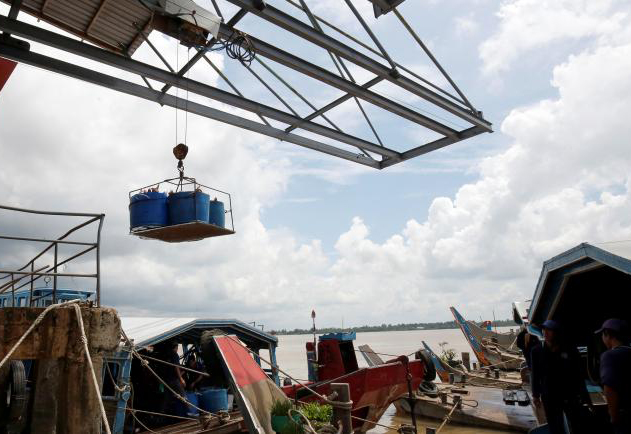
After the monsoon season, a special project will be introduced in Twante Township to revive Yangon Region’s fishing industry
A special project to revive Yangon Re¬gion’s fishing in¬dustry will be introduced in Twante Township after monsoon season, Yan¬gon’s Chief Minister U Phyo Min Thein said at a UMFCCI meeting on July 20. Twante Township is home to Yangon Region’s top fish breeders and is located less than 50 kilo-meters from Yangon in¬dustrial ports. “Developing Yangon Region’s fishing indus¬try has great urgency be¬cause of its potential for boosting GDP and local job growth,” U Phyo Min Thein, said. Myanmar Fisheries Federation (MFF) will work closely with local fish breeders to maximize production, offer techno¬logical innovations, and address chronic industry problems. -
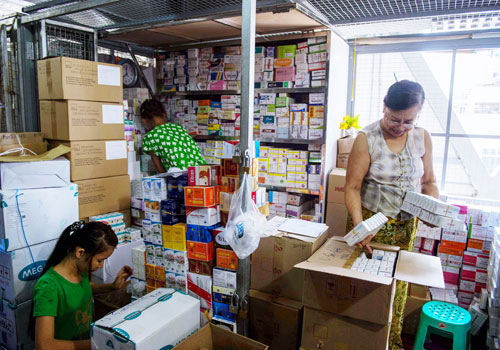
Myanmar ranks 170 in World Bank's Doing Business report for 2017
The World Bank released its Doing Business report for Myanmar in 2017. Based on the findings, Myanmar ranks 170 in ease of doing business this year, up from 171 in 2016. The country now has a population of almost 54 million, and a gross national income per capita US$1,293 per year. At 170, Myanmar actually trails all its neighbours in ASEAN in the ease of doing business (see Chart 1). But it is aiming to raise its rank to at least 100 or less within the next few years. Published every year, Doing Business sheds light on how easy or difficult it is for a local entrepreneur to open and run a small to medium-size business when complying with relevant regulations. It measures and tracks changes in regulations affecting 11 areas in the life cycle of a business. -
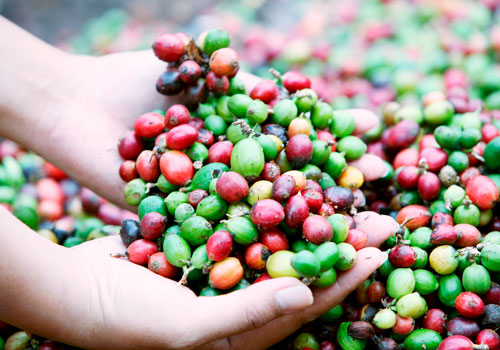
Although coffee can be one big export product in the future, the industry needs support from the government to produce crops and protect local growers before competing in the international market (U Ye Myint, Chair of Myanmar Coffee Association)
Coffee could be the next big export product for Myanmar. But the industry needs support and protection from the government to produce the crop and before local growers start competing in the international market, Myanmar Coffee Association chair U Ye Myint, told The Myanmar Times. Myanmar is one of the few countries to cultivate and harvest high-grade coffee beans. Over the last few years, the country has exported growing quantities of coffee beans and now has a reputation for producing high quality coffee. In 2015-16, Myanmar exported a total of 1,137 tons of coffee beans, more than double what it exported in 2011-12, according to data revealed by the Department of Trade. -
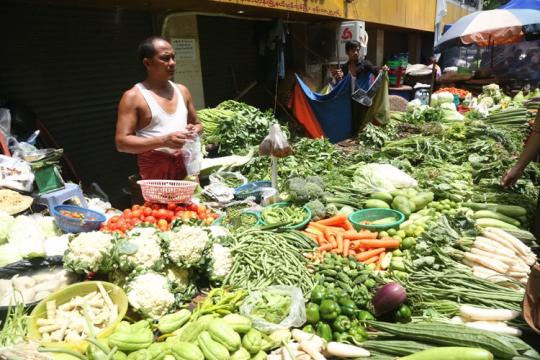
Myanmar Trade Promotion Organization and Myanmar Fruit and Vegetable Growers’ Association discuss the prioritization of fruit and vegetables in the national export strategy
The Myanmar Trade Promotion Organisation at the Ministry of Commerce and Myanmar Fruit and Vegetable Growers' Association are discussing the prioritisation of fruit and vegetables in the national export strategy. Exports play a crucial role in developing an economy, and fruit and vegetables could form a key part of the strategy, said Aung Soe, director general of the Trade Promotion Organisation. Chairman of the growers' association Soe Than Min Din called for the establishment of fruit and vegetable wholesale centres in every district of Yangon Region, like Danyingon wholesale centre under construction, as trading at Thiri Mingalar Market alone caused waste and delays. -
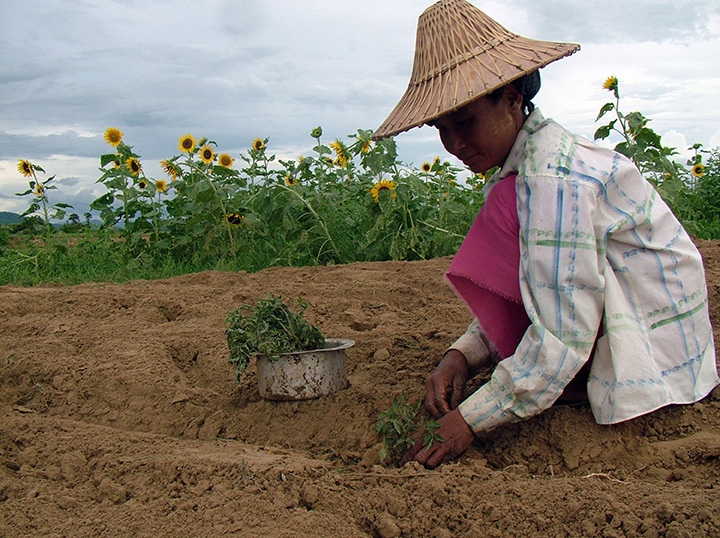
A proposal to construct the 33 agribusiness service centers in states and regions was submitted to Myanmar Investment Commission (MIC)
Myanmar’s Agribusiness Public Corporation (MAPCO), the Myanmar Rice Federation (MRF) and the China International Trust Investment Corporation (CITIC) Group submitted a US$400 million proposal to Myanmar Investment Commission (MIC) to construct the 33 agribusiness service centers in states and regions. “We will construct the 33 agribusiness service centers as soon as possible,” said Dr. Soe Tun, the Myanmar Rice Federation MRF vice chairman. “Currently, we are waiting for the permission from MIC. The estimated cost of the whole project is US$400 million. Now, we are seeking contracts for international loans.” -
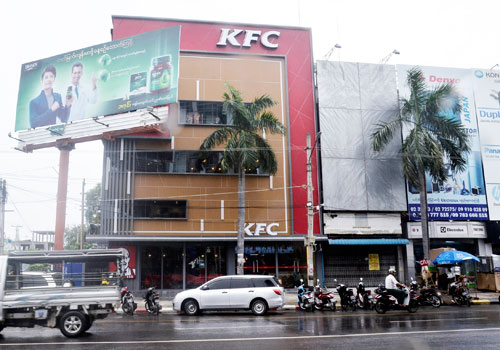
Mandalay region likely to reach US$ 600 million foreign direct investment (FDI) target in the fiscal year 2017-2018 since it had already exceeded US$ 582 million in June 2017
The Mandalay region is set to achieve its US$600 million foreign direct investment (FDI) target for 2017-18. FDI in April-June has already exceeded US$582 million, which is around 90 per cent of the target, data released by the Mandalay Region Investment Committee showed. Under the new Myanmar Investment Law enacted in Oct 2016, Region and State investment committees have been given the authority to approve investment activities across Myanmar. Formed with an aim to facilitate potential investors, the Mandalay Region Investment Committee comprises Chief Minister Dr. Zaw Myint Maung as chair, while members include a Region Planning and Finance Minister, Electricity, Energy and Construction Minister as well as the Regional Industrial Supervision and Inspection Department, Directorate of Investment and Company Administration (DICA) and Planning Department (PD). -
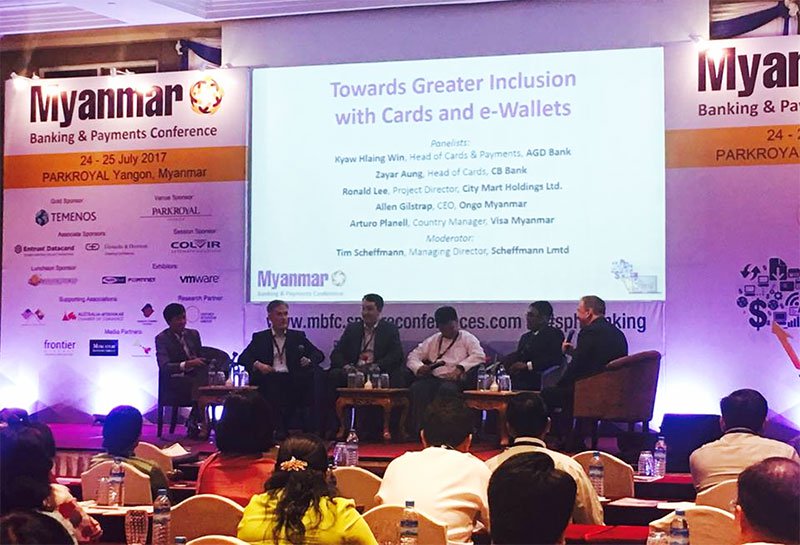
Myanmar Banking and Payment Conference sent a key message to the banking and financial sectors to harness the benefits of the digital revolution and adapt themselves to be relevant and meet customer needs
Banking and financial sectors need to harness the benefits of the digital revolution and adapt themselves to be relevant and in meeting the customer needs. This has been the central message of the two-day Myanmar Banking & Payments Conference in Yangon from 24-25th July 2017. In his opening key note address, Sean Turnell economic advisor to the government pointed out that the macro stability has been achieved to a greater degree during the past one year and reforms in banking and financial sector are on track to propel the economy. Pointing out that mobile banking law, easing the operations of micro finance institutions and commitment to adoption of Basel norms by the central bank are some of the positive features in the sector. Steps like limiting the borrowing of the government from the central bank, debt scrutiny, tax reforms and development of capital markets and bond markets are some of the notable developments that give an optimistic outlook for the future. Reforming the state owned banks is also on the agenda of the government to ensure that they are relevant to meet the growing demands of the people. -
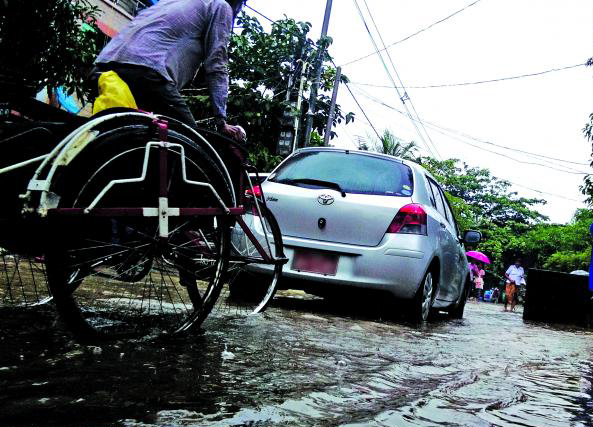
With help from a World Bank loan and international guidelines, Yangon City Development Committee (YCDC) will solicit tenders for the overhaul of Yangon’s flooding and natural disaster infrastructure
The Yangon City De¬velopment Com¬mittee (YCDC) will solicit tenders for the overhaul of Yangon’s flooding and natural dis¬aster infrastructure with the help of a World Bank loan and international guidelines. The World Bank created the Myanmar Southeast Asia Disaster Risk Man¬agement Project (DRMP) as a solution to the havoc monsoon’s yearly flooding and inundation wreaks on Yangon’s urban ar¬eas, according to Dr. Tin Tun Oo, Deputy Official of Engineer Department of Yangon City Develop¬ment Committee (YCDC). -
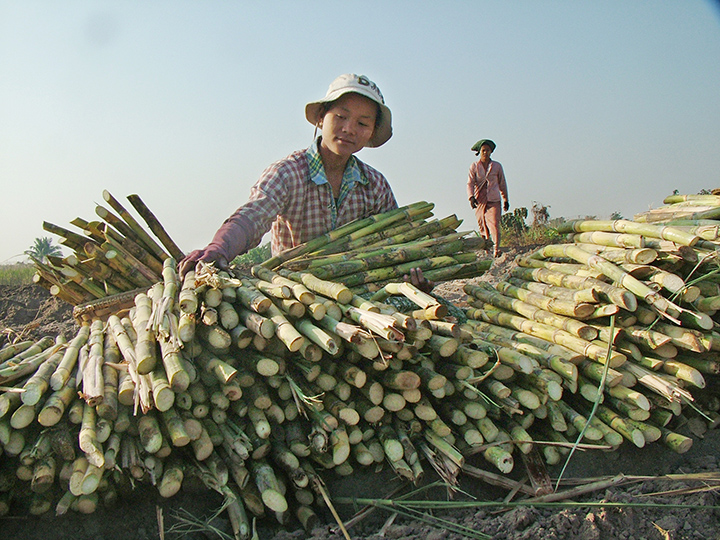
Myanmar government plans to boost sugar production to reduce reliance on sugar import
The government plans to boost sugar production to reduce the nation’s reliance on sugar imports and re-exports, according to a report of yesterday’s edition of City News. Myanmar re-exports sugar sourced from Thailand, India and Pakistan to China since locally produced sugar is substandard due to lack of quality machinery. Myanmar is planning to establish a state-of-the-art sugar mill and to adopt quality sugar cane cultivation methods with assistance from sugar-growing nations including Brazil.
เกาะติดข่าว
Copyright © 2014 Business Information Center All Rights Reserved.







